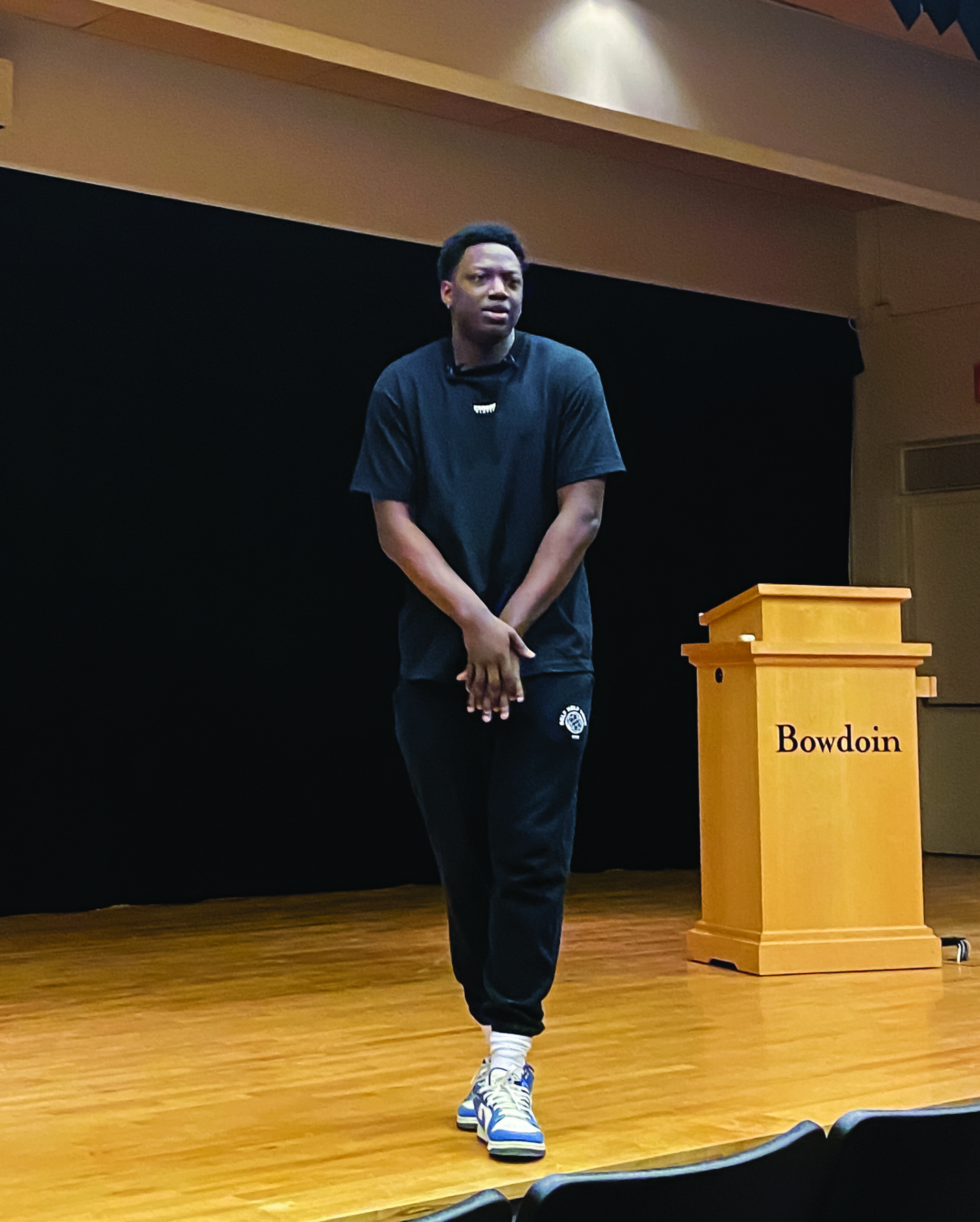DI basketball player Kaleb Joseph calls for mental health dialogue among student-athletes
February 9, 2024
 Amira Oguntoyinbo
Amira OguntoyinboOn Monday, the Department of Athletics and the Leadership and Empowerment through Athletic Principles (LEAP) initiative brought former Division I basketball player Kaleb Joseph to campus to talk about mental health and student athletics. In his speech titled “From Pain to Purpose: The Power of Vulnerability,” Joseph spoke about his past struggles with depression, anxiety and addiction, encouraging student-athletes to open up with their teammates and friends.
As a young child with ten other siblings and a mother also suffering from depression, Joseph placed a lot of faith in his basketball ability, stating that it was his goal from the fifth grade onward to make $1 million. He eventually attended both Cushing Academy and Syracuse University on basketball scholarships.
Joseph explained that the pressure and expectations he placed on himself were part of why his mental health took a steep downturn upon losing his second game at Syracuse.
“Expectations are like clouds. And because I was good, and I showed signs early, there were expectations and clouds in every room I went into,” Joseph said. “The more I tried to assert myself into the game, the harder I fought to make a good play—I was in quicksand. I couldn’t get out of it, I just wasn’t ready. After that game, I went home and I locked myself in my apartment because this was the first time that I felt real shame.”
Joseph called for both student-athletes and faculty to join in vulnerable discussions about how much a bad game can impact a player’s mental health.
“If you can’t talk about the narrative after a bad game, in a room full of people who all understand and have already acknowledged that they know exactly what you’re talking about, you don’t stand a chance … when you get out into the real world,” Joseph said. “That feeling that you get in your stomach? I need you to lean into it, do not hide from it because you guys have gotten way too comfortable with [hiding].”
Joseph hopes students will talk with their teams and reach out to others about their mental health—especially their teammates. Joseph emphasized that the narratives people hold on to are the ones they will carry with them into the rest of their lives, from sports to relationships to their professional lives. He underscored the need to break generational cycles of ignoring mental health, as well as the simultaneous difficulty and necessity of starting the conversation.
“I realized that your mental health is literally everything. Your mental health is your ability to identify, process and manage every single thing,” Joseph said. “The same brain you take onto the field is the same brain that you take home with you. So if you don’t learn how to process these things, it will ruin your life.”
Joseph’s proposed processing strategy for post-game emotional downturns has four steps: setting achievable and actionable intentions, executing them, giving a short amount of time to reflect and, most importantly, letting the negative emotions go.
Faculty and students alike found Joseph’s talk particularly meaningful and thought-provoking.
“The biggest thing he talked about was that all of those [students are] really high achievers, but it doesn’t mean they don’t have issues associated,” Assistant Athletic Director for Facilities and Event Management Kevin Loney said. “So having somebody putting words to it and [talking about] the importance of vulnerability is really important for people of all different ages.”
William Fowler ’27, a member of Bowdoin’s men’s soccer team, also thought the talk was incredibly important.
“He brought up issues that people don’t normally talk about,” Fowler said. “He was very vocal and very confrontational in his attitude, and that definitely got me thinking. From [when] I talked to my teammates, it definitely got them thinking too. It wasn’t your typical talk.”
For Joseph, the very action of connecting to students is what he found most meaningful.
“[Helping people] makes me feel connected to everyone,” Joseph said in an interview with the Orient. “You know, I still feel all of the same feelings. I still have all the doubts, the fears, the insecurities. When I see everybody in the room raising their hands in agreement, it makes me feel connected.”

Comments
Before submitting a comment, please review our comment policy. Some key points from the policy: